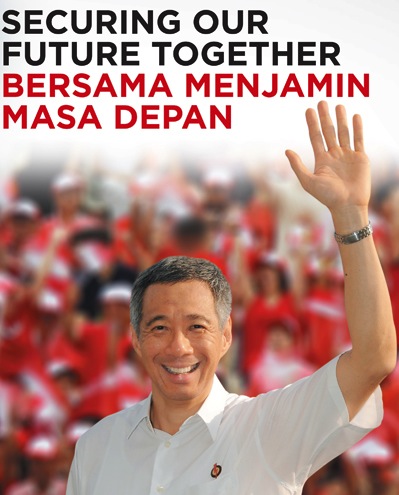By Augustine Low


Even at an event to carve the way forward – the PAP convention last Sunday – PM Lee Hsien Loong harked back to successive generations voting for the party, declaring that “only the PAP can provide this leadership” while Chan Chun Sing pledged that “we will have to learn from the 1960 generation of PAP pioneers”.
In September, when asked what qualities he wanted in the next Prime Minister, PM Lee said that ideally, he wanted another Lee Kuan Yew.
Harking back to the past, looking to the PAP pioneers for clues to the future, and wishing for another Lee Kuan Yew would only foster the perception that the PAP lacks ingenuity and inventiveness.
Many leaders became iconic and unforgettable because they had the good fortune to come along in an age when their attributes perfectly matched the circumstances of the day. Nelson Mandela was such a man. Among the tributes in the wake of his passing, one commentator summed it up nicely: “Mandela emerged at that rare point in history where idealism and pragmatism were practically indistinguishable.”
It can be argued that Lee Kuan Yew profited from a convergence of circumstances which allowed him free rein to comprehensively dominate a democracy. Today, a no-holds-barred autocratic style would be soundly rejected. Even immense intellect and willpower would not be enough to give another Lee Kuan Yew his day in the sun, so it’s pointless wishing for one.
The PAP needs to apply political reimagination to address 21st century realities, chief of which is the Internet. Instead, at the party convention, PM Lee sang the same old tune: “We must rebut untruths and correct half-truths, especially online.”
This is the age when citizens are increasingly being involved in self-government and citizen voices, including voices of dissent, are di rigueur. It makes for a messier society in which arbiters of power and authority are questioned. And this is exactly where the PAP has to summon the guile and gumption to engage online media head-on instead of dismissing it as an irritant. The likes of Chan Chun Sing cannot look to the old guard for clues and solutions because it never had to contend with the Internet.
The government is in no man’s land when it decides it does not want to confer legitimacy and credibility to online media by engaging it directly, and yet at the same time it feels threatened by the gathering momentum of cyberspace.
It needs to do two things to break the stalemate. One, give mainstream media leeway to take it to task and ask the “heart of the matter” questions so that it can fulfil its rightful role. Two, engage and not ostracise online media by giving it the access that mainstream media is given – this is the best way to get its message across and to tear down walls, untruths and rumours. There will be some messiness for sure, but it is part and parcel of radical connectivity and the information age.
I quote the novelist Salman Rushdie, who is also a polished thinker: “In a free society the argument over the narratives never ceased. It was the argument itself that mattered. The argument was freedom. But in a closed society those who possessed political or ideological power invariably tried to shut down these debates.”
Augustine Low is a communications strategist.

